Eventos economicos
Jueves
Comercio Internacional
Seguros de desempleo
Reporte de petroleoo y gas natural
Balance del Fed
Money supply
Subasta de bonos
Credito del consumidor
International Trade
8:30 AM ET
Jobless Claims
8:30 AM ET
Quarterly Services Survey
10:00 AM ET
EIA Natural Gas Report
10:30 AM ET
EIA Petroleum Status Report
11:00 AM ET
3-Month Bill Announcement
11:00 AM ET
6-Month Bill Announcement
11:00 AM ET
3-Yr Note Announcement
11:00 AM ET
10-Yr Note Announcement
11:00 AM ET
30-Yr Bond Announcement
11:00 AM ET
Consumer Credit
3:00 PM ET
Fed Balance Sheet
4:30 PM ET
Money Supply
Jueves 08/09/11 Habla Bernanke, Obama
Re: Jueves 08/09/11 Habla Bernanke, Obama
Treasurys Price Chg Yield %
2-Year Note* -0/32 0.209
10-Year Note* -22/32 2.053
* at close
9:33 p.m. EDT 09/07/11Futures Last Change Settle
Crude Oil 89.58 0.24 89.34
Gold 1845.5 27.9 1817.6
E-mini Dow 11408 -7 11415
E-mini S&P 500 1198.75 -0.25 1199.00
9:43 p.m. EDT 09/07/11Currencies Last (bid) Prior Day †
Japanese Yen (USD/JPY) 77.36 77.26
Euro (EUR/USD) 1.4067 1.4097
† Late Wednesday in New York.
2-Year Note* -0/32 0.209
10-Year Note* -22/32 2.053
* at close
9:33 p.m. EDT 09/07/11Futures Last Change Settle
Crude Oil 89.58 0.24 89.34
Gold 1845.5 27.9 1817.6
E-mini Dow 11408 -7 11415
E-mini S&P 500 1198.75 -0.25 1199.00
9:43 p.m. EDT 09/07/11Currencies Last (bid) Prior Day †
Japanese Yen (USD/JPY) 77.36 77.26
Euro (EUR/USD) 1.4067 1.4097
† Late Wednesday in New York.
- admin
- Site Admin
- Mensajes: 165440
- Registrado: Mié Abr 21, 2010 9:02 pm
Re: Jueves 08/09/11 Habla Bernanke, Obama
Copper September 07,21:39
Bid/Ask 4.1038 - 4.1058
Change -0.0050 -0.12%
Low/High 4.1018 - 4.1226
Charts
Nickel September 07,21:39
Bid/Ask 9.8117 - 9.8203
Change -0.0113 -0.12%
Low/High 9.7980 - 9.8434
Charts
Aluminum September 07,21:32
Bid/Ask 1.0676 - 1.0691
Change -0.0002 -0.02%
Low/High 1.0637 - 1.0701
Charts
Zinc September 07,21:39
Bid/Ask 0.9999 - 1.0008
Change -0.0025 -0.25%
Low/High 0.9971 - 1.0060
Charts
Lead September 07,21:39
Bid/Ask 1.1042 - 1.1056
Change -0.0009 -0.08%
Low/High 1.1006 - 1.1095
Bid/Ask 4.1038 - 4.1058
Change -0.0050 -0.12%
Low/High 4.1018 - 4.1226
Charts
Nickel September 07,21:39
Bid/Ask 9.8117 - 9.8203
Change -0.0113 -0.12%
Low/High 9.7980 - 9.8434
Charts
Aluminum September 07,21:32
Bid/Ask 1.0676 - 1.0691
Change -0.0002 -0.02%
Low/High 1.0637 - 1.0701
Charts
Zinc September 07,21:39
Bid/Ask 0.9999 - 1.0008
Change -0.0025 -0.25%
Low/High 0.9971 - 1.0060
Charts
Lead September 07,21:39
Bid/Ask 1.1042 - 1.1056
Change -0.0009 -0.08%
Low/High 1.1006 - 1.1095
- admin
- Site Admin
- Mensajes: 165440
- Registrado: Mié Abr 21, 2010 9:02 pm
Re: Jueves 08/09/11 Habla Bernanke, Obama
Los futures del Dow Jones 7 puntos a la baja.
Australia +0.1%, el Hang Seng -0.37%, el Shanghai C. -0.12%, Korea +0.37%, el Nikkei +0.47%
Oil up 89.42, Au up 1,840.29
Yen down 77.37
Euro down 1.4066
Australia +0.1%, el Hang Seng -0.37%, el Shanghai C. -0.12%, Korea +0.37%, el Nikkei +0.47%
Oil up 89.42, Au up 1,840.29
Yen down 77.37
Euro down 1.4066
- admin
- Site Admin
- Mensajes: 165440
- Registrado: Mié Abr 21, 2010 9:02 pm
Re: Jueves 08/09/11 Habla Bernanke, Obama
Los puts de las acciones Chinas son las mas caras en cuatro anios. Parece que los inversionistas no estan esperando que estas acciones suban. Siguen apostando a la baja.
El dolar se fortalece en anticipacion a los discursos de maniana.
Se espera que las exportaciones de autos Chinas hayan aumentado a territorio record.
El dolar se fortalece en anticipacion a los discursos de maniana.
Se espera que las exportaciones de autos Chinas hayan aumentado a territorio record.
- admin
- Site Admin
- Mensajes: 165440
- Registrado: Mié Abr 21, 2010 9:02 pm
Re: Jueves 08/09/11 Habla Bernanke, Obama
Chile vende $1 billon de bonos en dolares al interes mas bajo de su historia o 3.35%
- admin
- Site Admin
- Mensajes: 165440
- Registrado: Mié Abr 21, 2010 9:02 pm
Re: Jueves 08/09/11 Habla Bernanke, Obama
La presidencia de Obama en numeros
$825 billones en estimulo
La compra de activos toxicos de la banca
Cash for clunkers
El credito para comprar casas
Gasto record
Explosion de deuda
Cinco versiones de ayuda a los duenios de casas en sus hipotecas
Varias estensiones de credito o extension de vida a FRE y FNM
Masiva regulacion financiera
ObamaCare
Subsidios a la energia
Moratoria de exploraciones de petroleo
Incansables amenazas de aumentar los impuestos a los ricos y a las corporaciones
La mayoria de sus programas ha fracasado, cada empleo creado producto del estimulo fiscal costo $280,000 (mas de cinco veces el sueldo promedio) de los cuestionables puestos de trabajo creados o salvados.
Cash for clunkers costo $3 billones solo para apurar las ventas de autos por unos meses. Los activos toxicos siguen intoxicando a la banca, la regulacion financiera institucionaliza el muy grande para caer, la modificacion de las hipotecas ayudo a muy pocas familias, y hasta el mismo Obama reconoce que los trabajos que se pensaban crear inmediatamente estuvieron ausentes.
Ningun CEO De la empresa privada sobreviviria si promete mas de lo que puede cumplir.
US recibio el primer downgraded de su historia bajo Obama, la deuda con respecto a su PBI aumento a niveles nunca visto en la historia de este pais, y la deuda publica mas alta tambien.
El desempleo a largo plazo es el mayor desde la Gran Depresion, la cantidad de personas que son duenias de casas es la mas baja desde 1965 y las ejecuciones de casas estan en sus niveles mas altos desde la Depresion. La creacion de empleos es la mas baja desde la Segunda Guerra Mundial.
La cantidad de Americanos que pagan impuestos es la menor en la historia del pais. (siempre digo pais de mantenidos, y es cierto) Y la proporcion de americanos que dependen del gobierno es la mas alta de la historia. (que horror)
La pregunta es puede Obama cambiar curso? de la respuesta depende su presidencia y el futuro del pais.
The Obama Presidency by the Numbers
The president constantly reminds us that he was dealt a difficult hand. But the evidence is overwhelming that he played it poorly
By MICHAEL J. BOSKIN
When it comes to the economy, presidents, like quarterbacks, often get more credit or blame than they deserve. They inherit problems and policies that affect the economy well into their presidencies and beyond. Reagan inherited Carter's stagflation, George H.W. Bush twin financial crises (savings & loan and Third World debt), and their fixes certainly benefitted the Clinton economy.
President Obama inherited a deep recession and financial crisis resulting from problems that had been building for years. Those responsible include borrowers and lenders on Wall Street and Main Street, the Federal Reserve, regulatory agencies, ratings agencies, presidents and Congress.
Mr. Obama's successor will inherit his deficits and debt (i.e., pressure for higher taxes), inflation and dollar decline. But fairly or not, historians document what occurred on your watch and how you dealt with your in-box. Nearly three years since his election and more than two years since the economic recovery began, Mr. Obama has enacted myriad policies at great expense to American taxpayers and amid political rancor. An interim evaluation is in order.
And there's plenty to evaluate: an $825 billion stimulus package; the Public-Private Investment Partnership to buy toxic assets from the banks; "cash for clunkers"; the home-buyers credit; record spending and budget deficits and exploding debt; the auto bailouts; five versions of foreclosure relief; numerous lifelines to Fannie Mae and Freddie Mac; financial regulation and health-care reform; energy subsidies, mandates and moratoria; and constant demands for higher tax rates on "the rich" and businesses.
Consider the direct results of the Obama programs. A few have performed better than expected—e.g., the auto bailouts, although a rapid private bankruptcy was preferable and GM and Chrysler are not yet denationalized successes. But the failed stimulus bill cost an astounding $280,000 per job—over five times median pay—by the administration's inflated estimates of jobs "created or saved," and much more using more realistic estimates.
Cash for clunkers cost $3 billion, just to shift car sales forward a few months. The Public-Private Investment Partnership, despite cheap federal loans, generated 3% of the $1 trillion claimed, and toxic assets still hobble some financial institutions. The Dodd-Frank financial reform law institutionalized "too big to fail" amid greater concentration of banking assets and mortgages in Fannie and Freddie. The foreclosure relief program permanently modified only a small percentage of the four million mortgages the president promised. And even Mr. Obama now admits that the shovels weren't ready in all those "shovel-ready" stimulus projects.
Perpetually overpromising and underdelivering is not remotely good enough, not even for government work. No corporate CEO could survive such a clear history of failure. The economic records set on Mr. Obama's watch really are historic (see nearby table). These include the first downgrade of sovereign U.S. debt in American history, and, relative to GDP, the highest federal spending in U.S. history save the peak years of World War II, plus the highest federal debt since just after World War II.
The employment picture doesn't look any better. The fraction of the population working is the lowest since 1983. Long-term unemployment is by far the highest since the Great Depression. Job growth during the first two years of recovery after a severe recession is the slowest in postwar history.
Moreover, the home-ownership rate is the lowest since 1965 and foreclosures are at a post-Depression high. And perhaps most ominously, the share of Americans paying income taxes is the lowest in the modern era, while dependency on government is the highest in U.S. history.
That's quite a record, although not what Mr. Obama and his supporters had in mind when they pronounced this presidency historic.
Enlarge Image
Close...President Obama constantly reminds us, with some justification, that he was dealt a difficult hand. But the evidence is overwhelming that he played it poorly. His big government spending, debt and regulation fix has clearly failed. Relative to previous recoveries from deep recessions, the results are disastrous. A considerable fraction of current joblessness, lower living standards, dependency on government and destroyed savings is the result. Worse, his debt explosion will be a drag on economic growth for years to come.
Mr. Obama was never going to enthusiastically embrace pro-market, pro-growth policies. But many of his business and Wall Street supporters (some now former supporters) believed he would govern more like President Clinton, post-1994. After a stunning midterm defeat, Mr. Clinton embarked on an "era of big government is over" collaboration with a Republican Congress to reform welfare, ratify the North American Free Trade Agreement and balance the budget. But Mr. Obama starts far further left than Mr. Clinton and hence has a much longer journey to the center.
The president still has time to rebound from his economic policy missteps by promoting permanent, predictable policies to strengthen forecasted anemic growth. But do Mr. Obama and his advisers realize their analysis of the economic crisis was flawed and their attempted solutions mostly misconceived? That vast spending, temporary tax rebates and social engineering did little of lasting value at immense cost? That the prospect of ever more regulation and taxation created widespread uncertainty and severely damaged incentives and confidence? That the repeated attempts to prevent markets (e.g., the housing market) from naturally bottoming and rebounding have created confusion and inhibited recovery?
Can Mr. Obama change course, given the evidence that the economy responded poorly to top-down direction from Washington rather than the bottom-up individual initiative that is the key to strong growth? Is he willing to rein in the entitlement state erected under radically different economic and demographic conditions? And will he reform the corporate and personal income taxes with much lower rates on a broader base? Or is he going to propose the same failed policies—more spending, social engineering, temporary tax cuts and permanent tax hikes?
On the answer to these questions, much of Mr. Obama's, and the nation's, future rests.
Mr. Boskin, a professor of economics at Stanford and a senior fellow at the Hoover Institution, chaired the Council of Economic Advisers under President George H.W. Bush.
$825 billones en estimulo
La compra de activos toxicos de la banca
Cash for clunkers
El credito para comprar casas
Gasto record
Explosion de deuda
Cinco versiones de ayuda a los duenios de casas en sus hipotecas
Varias estensiones de credito o extension de vida a FRE y FNM
Masiva regulacion financiera
ObamaCare
Subsidios a la energia
Moratoria de exploraciones de petroleo
Incansables amenazas de aumentar los impuestos a los ricos y a las corporaciones
La mayoria de sus programas ha fracasado, cada empleo creado producto del estimulo fiscal costo $280,000 (mas de cinco veces el sueldo promedio) de los cuestionables puestos de trabajo creados o salvados.
Cash for clunkers costo $3 billones solo para apurar las ventas de autos por unos meses. Los activos toxicos siguen intoxicando a la banca, la regulacion financiera institucionaliza el muy grande para caer, la modificacion de las hipotecas ayudo a muy pocas familias, y hasta el mismo Obama reconoce que los trabajos que se pensaban crear inmediatamente estuvieron ausentes.
Ningun CEO De la empresa privada sobreviviria si promete mas de lo que puede cumplir.
US recibio el primer downgraded de su historia bajo Obama, la deuda con respecto a su PBI aumento a niveles nunca visto en la historia de este pais, y la deuda publica mas alta tambien.
El desempleo a largo plazo es el mayor desde la Gran Depresion, la cantidad de personas que son duenias de casas es la mas baja desde 1965 y las ejecuciones de casas estan en sus niveles mas altos desde la Depresion. La creacion de empleos es la mas baja desde la Segunda Guerra Mundial.
La cantidad de Americanos que pagan impuestos es la menor en la historia del pais. (siempre digo pais de mantenidos, y es cierto) Y la proporcion de americanos que dependen del gobierno es la mas alta de la historia. (que horror)
La pregunta es puede Obama cambiar curso? de la respuesta depende su presidencia y el futuro del pais.
The Obama Presidency by the Numbers
The president constantly reminds us that he was dealt a difficult hand. But the evidence is overwhelming that he played it poorly
By MICHAEL J. BOSKIN
When it comes to the economy, presidents, like quarterbacks, often get more credit or blame than they deserve. They inherit problems and policies that affect the economy well into their presidencies and beyond. Reagan inherited Carter's stagflation, George H.W. Bush twin financial crises (savings & loan and Third World debt), and their fixes certainly benefitted the Clinton economy.
President Obama inherited a deep recession and financial crisis resulting from problems that had been building for years. Those responsible include borrowers and lenders on Wall Street and Main Street, the Federal Reserve, regulatory agencies, ratings agencies, presidents and Congress.
Mr. Obama's successor will inherit his deficits and debt (i.e., pressure for higher taxes), inflation and dollar decline. But fairly or not, historians document what occurred on your watch and how you dealt with your in-box. Nearly three years since his election and more than two years since the economic recovery began, Mr. Obama has enacted myriad policies at great expense to American taxpayers and amid political rancor. An interim evaluation is in order.
And there's plenty to evaluate: an $825 billion stimulus package; the Public-Private Investment Partnership to buy toxic assets from the banks; "cash for clunkers"; the home-buyers credit; record spending and budget deficits and exploding debt; the auto bailouts; five versions of foreclosure relief; numerous lifelines to Fannie Mae and Freddie Mac; financial regulation and health-care reform; energy subsidies, mandates and moratoria; and constant demands for higher tax rates on "the rich" and businesses.
Consider the direct results of the Obama programs. A few have performed better than expected—e.g., the auto bailouts, although a rapid private bankruptcy was preferable and GM and Chrysler are not yet denationalized successes. But the failed stimulus bill cost an astounding $280,000 per job—over five times median pay—by the administration's inflated estimates of jobs "created or saved," and much more using more realistic estimates.
Cash for clunkers cost $3 billion, just to shift car sales forward a few months. The Public-Private Investment Partnership, despite cheap federal loans, generated 3% of the $1 trillion claimed, and toxic assets still hobble some financial institutions. The Dodd-Frank financial reform law institutionalized "too big to fail" amid greater concentration of banking assets and mortgages in Fannie and Freddie. The foreclosure relief program permanently modified only a small percentage of the four million mortgages the president promised. And even Mr. Obama now admits that the shovels weren't ready in all those "shovel-ready" stimulus projects.
Perpetually overpromising and underdelivering is not remotely good enough, not even for government work. No corporate CEO could survive such a clear history of failure. The economic records set on Mr. Obama's watch really are historic (see nearby table). These include the first downgrade of sovereign U.S. debt in American history, and, relative to GDP, the highest federal spending in U.S. history save the peak years of World War II, plus the highest federal debt since just after World War II.
The employment picture doesn't look any better. The fraction of the population working is the lowest since 1983. Long-term unemployment is by far the highest since the Great Depression. Job growth during the first two years of recovery after a severe recession is the slowest in postwar history.
Moreover, the home-ownership rate is the lowest since 1965 and foreclosures are at a post-Depression high. And perhaps most ominously, the share of Americans paying income taxes is the lowest in the modern era, while dependency on government is the highest in U.S. history.
That's quite a record, although not what Mr. Obama and his supporters had in mind when they pronounced this presidency historic.
Enlarge Image
Close...President Obama constantly reminds us, with some justification, that he was dealt a difficult hand. But the evidence is overwhelming that he played it poorly. His big government spending, debt and regulation fix has clearly failed. Relative to previous recoveries from deep recessions, the results are disastrous. A considerable fraction of current joblessness, lower living standards, dependency on government and destroyed savings is the result. Worse, his debt explosion will be a drag on economic growth for years to come.
Mr. Obama was never going to enthusiastically embrace pro-market, pro-growth policies. But many of his business and Wall Street supporters (some now former supporters) believed he would govern more like President Clinton, post-1994. After a stunning midterm defeat, Mr. Clinton embarked on an "era of big government is over" collaboration with a Republican Congress to reform welfare, ratify the North American Free Trade Agreement and balance the budget. But Mr. Obama starts far further left than Mr. Clinton and hence has a much longer journey to the center.
The president still has time to rebound from his economic policy missteps by promoting permanent, predictable policies to strengthen forecasted anemic growth. But do Mr. Obama and his advisers realize their analysis of the economic crisis was flawed and their attempted solutions mostly misconceived? That vast spending, temporary tax rebates and social engineering did little of lasting value at immense cost? That the prospect of ever more regulation and taxation created widespread uncertainty and severely damaged incentives and confidence? That the repeated attempts to prevent markets (e.g., the housing market) from naturally bottoming and rebounding have created confusion and inhibited recovery?
Can Mr. Obama change course, given the evidence that the economy responded poorly to top-down direction from Washington rather than the bottom-up individual initiative that is the key to strong growth? Is he willing to rein in the entitlement state erected under radically different economic and demographic conditions? And will he reform the corporate and personal income taxes with much lower rates on a broader base? Or is he going to propose the same failed policies—more spending, social engineering, temporary tax cuts and permanent tax hikes?
On the answer to these questions, much of Mr. Obama's, and the nation's, future rests.
Mr. Boskin, a professor of economics at Stanford and a senior fellow at the Hoover Institution, chaired the Council of Economic Advisers under President George H.W. Bush.
- admin
- Site Admin
- Mensajes: 165440
- Registrado: Mié Abr 21, 2010 9:02 pm
Re: Jueves 08/09/11 Habla Bernanke, Obama
Por que fracaso el primer estimulo?
Un nuevo estudio de lo que realmente paso con el trillon de dolares
Aun la no creacion de empleos en Agosto, parece no haber hecho que Obama pierda la fe en su politica economia de sus primeros tres anios, por lo que el tema al escuchar su discurso esta noche sera el ver como explica la situacion actual. Por que su primer estimulo de $825 billones tan rapidamente necesita de otro estimulo para crear empleos?
Para los lectores que quieren saber que es lo que paso, los economistas de George Mason, Garett Jones y Daniel Rothschild realizaron un estudio al respecto.
Aqui un ejemplo de lo que encontraron: (no estoy segura si debo reir o llorar)
Un contratista declaro que se le pidio que usara locetas pequenias, que son mas caras de instalar para incrementar el precio del proyecto. De esa manera el gobierno podria decir que el dinero se estaba moviendo mas rapido. Aqui se aplica la famosa frase de Milton Friedman acerca del gobierno que para hacer huecos mejor se utilizaran cucharas para darle trabajo a mas gente.
En otro estudio, una municipalidad despidio a 185 empleados publicos para que pudiera recibir $4 millones de estimulo para mejorar la eficiencia de la energia. El manager de una compania de construccion dice que recibio fondos para comprar lo ultimo de la lista de cosas que necesitaba, algo casi innecesario: a crane y un forklift.
El segundo estudio sugiere que el estimulo no creo o salvo tantos empleos como el gobierno indico. Basada en 1,300 entrevistas, se estima que realmente solamente el 42.1% de las firmas que recibieron los fondos contrataros empleados. La realidad es que solo contrataron a empleados de su competencia que ya estaban trabajando.
La leccion del estimulo es que aumento el desempleo a 9.1%
La economia probablemente se hubiera beneficiado mas si el gobierno en su lugar hubiera mejorado los incentivos para las personas y los negocios para invertir, producir y crecer. El presidente probablemente no mencionara nada de esto, pero si explica por que tiene que volver a dar otro discurso.
Why the Stimulus Failed
New research on what actually happened to a trillion dollars
Even zero jobs growth in August doesn't seem to have disrupted President Obama's faith in the economic policies of his first three years, so one theme we'll be listening for in tonight's speech is how he explains the current moment. Why did his first jobs plan—the $825 billion stimulus—so quickly result in the need for another jobs plan?
For readers who want to know, an important account is offered in a pair of new Mercatus Center working papers by the George Mason economists Garett Jones and Daniel Rothschild, who did field research on what they call the supply side of the stimulus.
The Keynesian theory was that a burst of new government spending would take up some of the slack in aggregate consumer demand. This was justified in 2008, again in 2009, and is still defended now based not on real-world observation but on abstract macroeconomic models that depend on the assumptions of the authors. The Congressional Budget Office's quarterly studies—often cited to claim the stimulus created tens of thousands of new jobs—are based on such a model. By informative contrast, Messrs. Jones and Rothschild interviewed actual people who received stimulus dollars and asked how they spent the money.
Editorial page editor Paul Gigot on President Obama's jobs plan.
In the first paper, the authors survey 85 different businesses, nonprofits and local governments across the country and conclude that "As is often the case when economic models are transferred from the blackboard to actual public policy, there was a gap between theory and practice."
One of the major patterns Messrs. Jones and Rothschild uncovered was that the top-down stimulus was poorly targeted. In one redolent example, a federal contractor said he was told to use smaller, nonstandard tiles that are harder and more expensive to install in order to increase the cost of the project. That way, the government could claim the money was moving out the door faster. The famous Milton Friedman line about government ordering people to dig with spoons to employ more people comes to mind.
In another case study, a budget shortfall forced a mid-size city to lay off 185 public workers—but the city received a $4 million stimulus grant to improve municipal energy efficiency. The manager of a construction company received funds for "the last thing on our list; and truthfully, the least useful thing." It happened to be a crane and a forklift.
A carpenter forman surveys a construction site funded by federal stimulus in Lakewood, Colorado, in 2010.
.The authors are careful to note that such anecdotes do not mean that all of the stimulus was a waste, and they did find some success stories. The problem is that all but the most reductionist Keynesians of the Paul Krugman school believe it matters what the government spends money on. A dollar that eventually will be taken out of the private economy through borrowing or higher taxes to fund pointlessly expensive projects—a la the tiny tiles—is not the way to nurture a recovery.
The second paper suggests that the stimulus did not "create or save" nearly as many jobs as the models indicate. On the basis of 1,300 interviews, Messrs. Jones and Rothschild estimate that merely 42.1% of the firms that received grants hired people who were unemployed. Instead, they poached workers from their competitors.
"This suggests just how hard it is for Keynesian job creation to work in a modern, expertise-based economy," they write. The stimulus "was implemented at a time when the Keynesian model had every chance of succeeding on its own terms. The high level of unemployment and the rapid deadline for spending created both the supply of workers and the demand for workers. If the job market results are so lackluster in this setting, economists should expect even weaker stimulative results during more modest recessions."
The lesson of such on-the-ground knowledge is that the stimulus was a lost opportunity. In practice it became a shotgun marriage between an economic theory justified by computer models and 40 years of liberal social priorities (clean energy, Medicaid expansions and the rest). This produced the 9.1% unemployment we now have.
The economy would have benefitted far more if the government had instead improved the incentives for people and businesses to invest, produce and grow. The President probably won't mention any of this, but it does explain why he has to give his latest speech
Un nuevo estudio de lo que realmente paso con el trillon de dolares
Aun la no creacion de empleos en Agosto, parece no haber hecho que Obama pierda la fe en su politica economia de sus primeros tres anios, por lo que el tema al escuchar su discurso esta noche sera el ver como explica la situacion actual. Por que su primer estimulo de $825 billones tan rapidamente necesita de otro estimulo para crear empleos?
Para los lectores que quieren saber que es lo que paso, los economistas de George Mason, Garett Jones y Daniel Rothschild realizaron un estudio al respecto.
Aqui un ejemplo de lo que encontraron: (no estoy segura si debo reir o llorar)
Un contratista declaro que se le pidio que usara locetas pequenias, que son mas caras de instalar para incrementar el precio del proyecto. De esa manera el gobierno podria decir que el dinero se estaba moviendo mas rapido. Aqui se aplica la famosa frase de Milton Friedman acerca del gobierno que para hacer huecos mejor se utilizaran cucharas para darle trabajo a mas gente.
En otro estudio, una municipalidad despidio a 185 empleados publicos para que pudiera recibir $4 millones de estimulo para mejorar la eficiencia de la energia. El manager de una compania de construccion dice que recibio fondos para comprar lo ultimo de la lista de cosas que necesitaba, algo casi innecesario: a crane y un forklift.
El segundo estudio sugiere que el estimulo no creo o salvo tantos empleos como el gobierno indico. Basada en 1,300 entrevistas, se estima que realmente solamente el 42.1% de las firmas que recibieron los fondos contrataros empleados. La realidad es que solo contrataron a empleados de su competencia que ya estaban trabajando.
La leccion del estimulo es que aumento el desempleo a 9.1%
La economia probablemente se hubiera beneficiado mas si el gobierno en su lugar hubiera mejorado los incentivos para las personas y los negocios para invertir, producir y crecer. El presidente probablemente no mencionara nada de esto, pero si explica por que tiene que volver a dar otro discurso.
Why the Stimulus Failed
New research on what actually happened to a trillion dollars
Even zero jobs growth in August doesn't seem to have disrupted President Obama's faith in the economic policies of his first three years, so one theme we'll be listening for in tonight's speech is how he explains the current moment. Why did his first jobs plan—the $825 billion stimulus—so quickly result in the need for another jobs plan?
For readers who want to know, an important account is offered in a pair of new Mercatus Center working papers by the George Mason economists Garett Jones and Daniel Rothschild, who did field research on what they call the supply side of the stimulus.
The Keynesian theory was that a burst of new government spending would take up some of the slack in aggregate consumer demand. This was justified in 2008, again in 2009, and is still defended now based not on real-world observation but on abstract macroeconomic models that depend on the assumptions of the authors. The Congressional Budget Office's quarterly studies—often cited to claim the stimulus created tens of thousands of new jobs—are based on such a model. By informative contrast, Messrs. Jones and Rothschild interviewed actual people who received stimulus dollars and asked how they spent the money.
Editorial page editor Paul Gigot on President Obama's jobs plan.
In the first paper, the authors survey 85 different businesses, nonprofits and local governments across the country and conclude that "As is often the case when economic models are transferred from the blackboard to actual public policy, there was a gap between theory and practice."
One of the major patterns Messrs. Jones and Rothschild uncovered was that the top-down stimulus was poorly targeted. In one redolent example, a federal contractor said he was told to use smaller, nonstandard tiles that are harder and more expensive to install in order to increase the cost of the project. That way, the government could claim the money was moving out the door faster. The famous Milton Friedman line about government ordering people to dig with spoons to employ more people comes to mind.
In another case study, a budget shortfall forced a mid-size city to lay off 185 public workers—but the city received a $4 million stimulus grant to improve municipal energy efficiency. The manager of a construction company received funds for "the last thing on our list; and truthfully, the least useful thing." It happened to be a crane and a forklift.
A carpenter forman surveys a construction site funded by federal stimulus in Lakewood, Colorado, in 2010.
.The authors are careful to note that such anecdotes do not mean that all of the stimulus was a waste, and they did find some success stories. The problem is that all but the most reductionist Keynesians of the Paul Krugman school believe it matters what the government spends money on. A dollar that eventually will be taken out of the private economy through borrowing or higher taxes to fund pointlessly expensive projects—a la the tiny tiles—is not the way to nurture a recovery.
The second paper suggests that the stimulus did not "create or save" nearly as many jobs as the models indicate. On the basis of 1,300 interviews, Messrs. Jones and Rothschild estimate that merely 42.1% of the firms that received grants hired people who were unemployed. Instead, they poached workers from their competitors.
"This suggests just how hard it is for Keynesian job creation to work in a modern, expertise-based economy," they write. The stimulus "was implemented at a time when the Keynesian model had every chance of succeeding on its own terms. The high level of unemployment and the rapid deadline for spending created both the supply of workers and the demand for workers. If the job market results are so lackluster in this setting, economists should expect even weaker stimulative results during more modest recessions."
The lesson of such on-the-ground knowledge is that the stimulus was a lost opportunity. In practice it became a shotgun marriage between an economic theory justified by computer models and 40 years of liberal social priorities (clean energy, Medicaid expansions and the rest). This produced the 9.1% unemployment we now have.
The economy would have benefitted far more if the government had instead improved the incentives for people and businesses to invest, produce and grow. The President probably won't mention any of this, but it does explain why he has to give his latest speech
- admin
- Site Admin
- Mensajes: 165440
- Registrado: Mié Abr 21, 2010 9:02 pm
Re: Jueves 08/09/11 Habla Bernanke, Obama
Para ser honestos, no creo que Obama tenga la menor idea de lo que se debe hacer con el dinero del estimulo fiscal, el es un profesor, abogado, agitador de masas, que sabe el de economia? son los estupidos de sus asesores economicos como ese Paul Krugman, izquiedistas a morir, los que hacen las porquerias que han hecho en los ultimos tres anios. Ahora Obama maniana va a salir a decir que va a gastar $300 billones mas para crear empleos. Realmente ya me da pena el ridiculo que hace. Los Americanos no son economistas pero si saben de crear empleos, si saben lo que es un buen negocio cuando lo ven, son capitalistas por naturaleza, eso de distribuir la riqueza y extender el seguro de desempleo y los discursos con palabras vacias no va con ellos.
Por eso el 70% del pais piensa que la politica economica del presidente no funciona. Y es que es obvio, no funciona.
Por eso el 70% del pais piensa que la politica economica del presidente no funciona. Y es que es obvio, no funciona.
- admin
- Site Admin
- Mensajes: 165440
- Registrado: Mié Abr 21, 2010 9:02 pm
Re: Jueves 08/09/11 Habla Bernanke, Obama
Por segundo mes Australia corto empleos, esta ven 9,700 en el mes de Agosto.
Korea mantiene intereses.
Las ordenes de fabricas en Japon caen 8.2% en Julio. Malas noticias.
Korea mantiene intereses.
Las ordenes de fabricas en Japon caen 8.2% en Julio. Malas noticias.
- admin
- Site Admin
- Mensajes: 165440
- Registrado: Mié Abr 21, 2010 9:02 pm
Re: Jueves 08/09/11 Habla Bernanke, Obama
Me encanto:
Esto fue lo que se dijeron Perry y Romney en el debate de los candidatos republicanos a la presidencia:
Perry a Romney:
Michael Dukakis creo tres veces mas empleos que tu en Massachusetts.
Romney a Perry:
Bush y su predecesor crearon empleos mas rapido que tu en Texas.
(Bueno, por lo menos los dos crearon empleos de manera significativa)
Michael Dukakis created jobs three times faster than you did,” Perry said to Romney as the debate’s opening moments focused on the economy, referring to the former Democratic governor of Massachusetts who ran for president in 1988.
Romney, who has sought to present Perry as a career politician, quickly shot back by citing a former Texas governor who went on to be president.
“George W. Bush and his predecessor created jobs at a faster rate than you did!” Romney said.
Esto fue lo que se dijeron Perry y Romney en el debate de los candidatos republicanos a la presidencia:
Perry a Romney:
Michael Dukakis creo tres veces mas empleos que tu en Massachusetts.
Romney a Perry:
Bush y su predecesor crearon empleos mas rapido que tu en Texas.
(Bueno, por lo menos los dos crearon empleos de manera significativa)
Michael Dukakis created jobs three times faster than you did,” Perry said to Romney as the debate’s opening moments focused on the economy, referring to the former Democratic governor of Massachusetts who ran for president in 1988.
Romney, who has sought to present Perry as a career politician, quickly shot back by citing a former Texas governor who went on to be president.
“George W. Bush and his predecessor created jobs at a faster rate than you did!” Romney said.
- admin
- Site Admin
- Mensajes: 165440
- Registrado: Mié Abr 21, 2010 9:02 pm
Re: Jueves 08/09/11 Habla Bernanke, Obama
Rush Limbaugh dice que el republicano Marco Rubio de Florida, un dia sera presidente de US. Ojala.
- admin
- Site Admin
- Mensajes: 165440
- Registrado: Mié Abr 21, 2010 9:02 pm
Re: Jueves 08/09/11 Habla Bernanke, Obama
Los graficos del dia, 
.

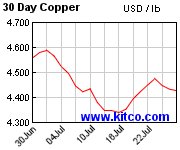
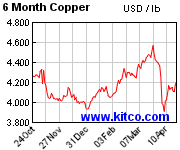
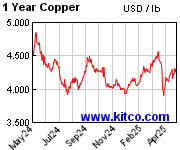
.

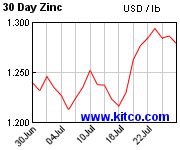
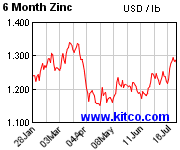
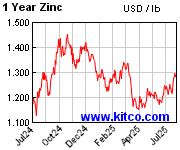
.

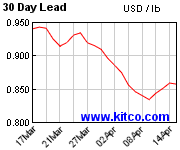
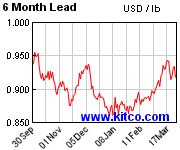
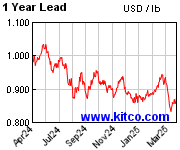
.

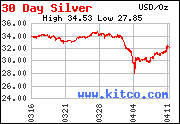
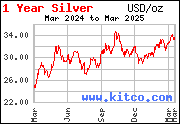
.

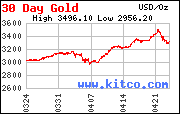
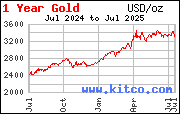
.
.




.




.




.



.



.
- Comodoro
- Mensajes: 980
- Registrado: Jue May 06, 2010 8:24 am
- Ubicación: LIMA
Re: Jueves 08/09/11 Habla Bernanke, Obama
Treasurys Price Chg Yield %
2-Year Note 1/32 0.197
10-Year Note 17/32 1.996
* at close
8:35 a.m. EDT 09/08/11Futures Last Change Settle
Crude Oil 89.18 -0.16 89.34
Gold 1849.7 32.1 1817.6
E-mini Dow 11355 -60 11415
E-mini S&P 500 1191.50 -7.50 1199.00
8:46 a.m. EDT 09/08/11Currencies Last (bid) Prior Day †
Japanese Yen (USD/JPY) 77.28 77.26
Euro (EUR/USD) 1.3996 1.4097
† Late Wednesday in New York.
2-Year Note 1/32 0.197
10-Year Note 17/32 1.996
* at close
8:35 a.m. EDT 09/08/11Futures Last Change Settle
Crude Oil 89.18 -0.16 89.34
Gold 1849.7 32.1 1817.6
E-mini Dow 11355 -60 11415
E-mini S&P 500 1191.50 -7.50 1199.00
8:46 a.m. EDT 09/08/11Currencies Last (bid) Prior Day †
Japanese Yen (USD/JPY) 77.28 77.26
Euro (EUR/USD) 1.3996 1.4097
† Late Wednesday in New York.
- admin
- Site Admin
- Mensajes: 165440
- Registrado: Mié Abr 21, 2010 9:02 pm
Re: Jueves 08/09/11 Habla Bernanke, Obama
Treasurys Price Chg Yield %
2-Year Note 1/32 0.197
10-Year Note 17/32 1.996
* at close
8:35 a.m. EDT 09/08/11Futures Last Change Settle
Crude Oil 89.18 -0.16 89.34
Gold 1849.7 32.1 1817.6
E-mini Dow 11355 -60 11415
E-mini S&P 500 1191.50 -7.50 1199.00
8:46 a.m. EDT 09/08/11Currencies Last (bid) Prior Day †
Japanese Yen (USD/JPY) 77.28 77.26
Euro (EUR/USD) 1.3996 1.4097
† Late Wednesday in New York.
2-Year Note 1/32 0.197
10-Year Note 17/32 1.996
* at close
8:35 a.m. EDT 09/08/11Futures Last Change Settle
Crude Oil 89.18 -0.16 89.34
Gold 1849.7 32.1 1817.6
E-mini Dow 11355 -60 11415
E-mini S&P 500 1191.50 -7.50 1199.00
8:46 a.m. EDT 09/08/11Currencies Last (bid) Prior Day †
Japanese Yen (USD/JPY) 77.28 77.26
Euro (EUR/USD) 1.3996 1.4097
† Late Wednesday in New York.
- admin
- Site Admin
- Mensajes: 165440
- Registrado: Mié Abr 21, 2010 9:02 pm
¿Quién está conectado?
Usuarios navegando por este Foro: No hay usuarios registrados visitando el Foro y 25 invitados
